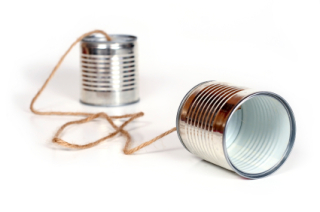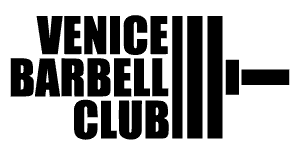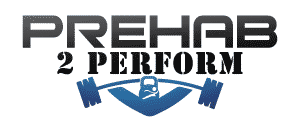Primal Prescriptions!
The past few weeks I have been on the road to recovery from a minor shoulder injury. My recovery has included deep tissue massages, scaling down on upper body training and gaining a better understanding of how our muscles work in conjunction with each other. Diet is also key in recovery and lately my diet has been less than par, I won’t lie. But, as a punishment, I’m totally feeling the wrath of it and not just in my gut. It boggles my mind how the nagging health issues and symptoms I had before I went paleo creep up on me so fast when I cheat. Headaches, moodiness, bloating, stomach ache, sleep disturbances, lack of appetite… the list could literally go on. I’ll end it there because well, none of those things ever make anyone feel strong (mentally and physically) or pretty.
Anyway, like the average person, I used to tackle these issues with the wrong type of thinking. Saw multiple doctors, drank a shit ton of pepto bismal, popped a couple ibuprofen, ate some disgusting comfort foods and BAM!… no results. And then like a dummy, I would repeat the cycle of ingesting over-the-counter drugs because that’s what the commercials told me to do. That was until I went paleo. Paleo, being a change in lifestyle, not ONLY diet, helped me to cleanse my body of the yuckiness so I could start fresh and give it the right amount of attention it needed. I discovered that all I had to do was just listen. Imagine that!
I find it interesting that the moment I start slacking and ignoring my body, a friend in the paleo community blogs about it. Ok, ok… it wasn’t about ME specifically, but the post hit home regardless. Mark’s Daily Apple posted this little bit, reminding me how to listen .When in doubt, just let your body tell you how your food, sleep and training are benefiting/hurting you.
Question: what does your body feel like right now? Go ahead. Take an inventory. From the toes to the head, what’s going on in there at the present moment? How’s your back? How’s your stomach? Your head? How about muscles? Your energy level and mood? Is your thinking clear this morning? Good and bad, what signals are you getting? Beyond the here and now, what’s your body been trying to tell you lately? Any changes since beginning the Challenge? Most important of all perhaps – are you accustomed to listening to what your body has to say?
Everything about our culture, it seems, discourages us from doing just that. From the commercials insisting we don’t need to put up with that headache to the glorification of binge drinking, taking a body’s hint isn’t exactly at the top of most people’s list of talents or priorities. Why live with that pesky fever when you can simply beat it back with 1000 milligrams of extra strength head-in-the-sand? Indigestion from eating that second Big Mac today? Try some Pepcid AC.
Think about it. People bring a kind of pride to pushing through the pain (and I’m not just talking about childbirth or weightlifting here). People go into work sick as dogs (my personal favorite). They knowingly ignore with the clear physiological effects of chronic stress. They eat a diet for much or all of their lifetime that leaves them sluggish and overweight. It’s only when serious illness hits that we sit up and take notice. (Ironically, sometimes serious illness teaches us how to listen to our bodies, to discover how symptoms – however subtle – can be a crucial barometer for larger issues.) The body has – and shares – its own brand of wisdom. We’d do well to heed its cues before it smacks us over the head with a club.
Too often, of course, we surrender the power that comes from reading and knowing our bodies. We unthinkingly relinquish it to doctors and other practitioners, either because we genuinely believe that theirs is the only substantive opinion or because we don’t really want to take responsibility for our health. Owning your well-being is an unofficial but essential Primal principle. Appreciating your ability to listen to your body’s signals follows from it.
In yesterday’s post, I wrote about the potential (and fun) of self-experimentation. You’re your very own guinea pig. (Oh, the possibilities…) Ultimately, however, the crux of self-experimentation is self-assessment – physical assessment to be exact. A glucose monitor can be a handy tool. A heart rate monitor is a good gadget to have. A notebook and pen (or Word document) might be an even better set of instruments, however. (It all depends upon an open and perceptive mind of course.) I’ll venture to say that your body will tell you in its own way what the machine displays. By all means, take advantage of technology, but use it to help hone your own perception. What does a certain heart rate feel like? What sensations creep up when your glucose hits a certain number?
What does a headache mean? A backache? What precipitates foggy thinking or acid reflux? What confers a sense of lightness after lunch or a good night’s sleep? What choices seem to contribute to or prevent that infamous midafternoon slump?
Think about all the sensations that your body can produce – positive and negative: fatigue, foggy thinking, dizziness, digestive issues, rapid breathing or heart beat, skin flare-ups, back pain or general achiness, stiffness, stuffy nose, neck tension, dry eyes, constipation, dry mouth, headache – and the balanced, comfortable opposites of those symptoms like a clear head, steady energy, effective digestion, relaxed muscles, and regular bowel movements. (Don’t underestimate the gratification and importance of a good poop.)
Genuine health of course isn’t just the absence of obvious negative symptoms as it’s often thought of. Living a life in line with its genetic expectations goes a long way toward deciphering the softer signs. For example, lots of folks tell me it was only after going Primal that they were able to pinpoint food allergies or underlying chronic conditions. Going Primal finally allowed them to perceive the subtler signals that had previously been blocked out by bigger noise of a SAD, inflammation-promoting, digestion-busting diet, chronic cardio, or consistent lack of sleep. Most of us have had this experience on some level. Going Primal reveals long-term disruption we didn’t even know existed until we had the experience of living without its sources and subsequent misery.
To complement your self-experimentation or just enhance your Challenge success, learn to hone your perception skills with regular practice and keen assessment.
- Keep a reminder with you. Psychologists often advise clients to keep a stone or other object in their pocket or on their wrist as a reminder to assess their well-being periodically during the day.
- Stop a few times a day – a few consistent times and any time you feel a peak or valley on the horizon. Put your hand on your heart if you need an added gesture to get into the spirit of the exercise. Take an inventory of every part, but don’t just look for the bad or use the “okay” as the measuring stick for good. Identify what sensations are associated with real vitality (e.g. relaxed shoulders, soft eye expression, a bright feeling in your upper body).
- Record the negative and positive feelings you observe. Think about what’s going on in the present moment. Where are you are? What kind of interactions and activities have filled this part of the day? What have you eaten in the last one to two hours? When was the last time you were outside? How does this compare to how you felt yesterday at this same time?
- Compare the sensations and connections to your self-experimentation project. Are you onto something? Write it down, and see if similar conditions the next day produce the same sensations or if changed circumstances interrupt the pattern.
- Think about where you’re at in your self-experimentation or Challenge transition. If you’ve chosen to overhaul your diet and finally ditch grains and sugar this week, the fatigue you may be feeling is possibly the low carb flu. If your goal has been to ratchet up your exercise but you’ve been overdoing it or not allowing for adequate recovery time, you might need to give yourself a rest period. The truth might be found in both the details and the big picture.
- Get in the habit of thinking through your physical sensation. Give the body its due as part of the intellect. Like all animals, we apprehend and interpret our environment bodily as well as abstractly. Ask the body in whatever manner of speaking you’re into, what do you need now? Movement? A nap? Some fresh air or sunlight? An extra layer of clothing? Maybe just a good laugh?
- Whatever you undertake in response, take time to read the subsequent signals. What’s changed? What happened to the old sensations? What new ones do you notice? Are parts of you affected that weren’t before? Maybe you didn’t notice any mental fogginess before, but now you realize how much clearer and sharper your thinking is after a brisk walk or a few minutes of play. Relish and repeat.
















